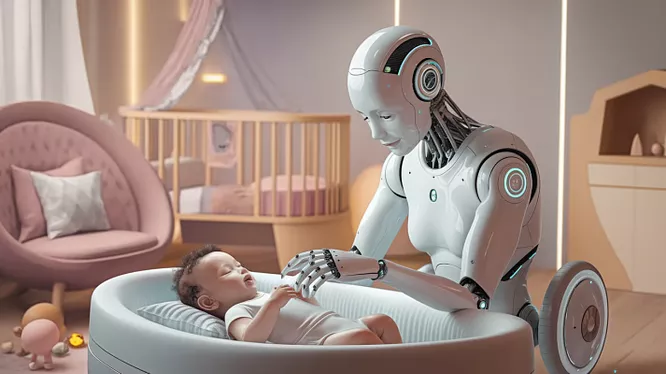Generation Beta: The First to Be Born in a world dominated by AI

Every generation has grown up with a defining relationship to technology and work. It has shaped how they learn, how they earn, and how they see themselves in the world.
• The Silent Generation (1926–1945) grew up amidst war and reconstruction. Technology was scarce, but resilience and discipline were abundant. They saw industrial tools as enablers of survival and rebuilding.
• The Baby Boomers (1946–1964) were the children of prosperity. They entered the workforce in an era of factories, highways, and television. Technology meant economic expansion and stability.
• Generation X (1965–1979) witnessed the rise of personal computers and early networks. They became skeptical, independent, and adaptable, bridging the gap between analog and digital.
• The Millennials (1980–1994) came of age during the internet revolution. For them, work was no longer just a paycheck — it was about purpose, flexibility, and authenticity. They embraced collaboration through digital platforms.
• Generation Z (1995–2009) were true digital natives. Smartphones, social media, and streaming defined their lives. They became visual communicators, online activists, and champions of authenticity.
• Generation Alpha (2010–2024) is growing up with iPads in their cribs, AI assistants in their homes, and augmented reality in their classrooms. They are self-taught, multi-connected, and already navigating a world infused with artificial intelligence.
And now comes a new milestone:
Generation Beta (2025–2039)
For the first time in history, an entire generation will be born inside a reality already woven with AI and automation. They will not “adopt” AI like previous generations. They will inhabit it.
But this creates profound challenges — and responsibilities for us today.
1. Education without limits — or without humanity?
AI tutors will personalize lessons down to the second. Knowledge will be abundant and instantly accessible. But will children still learn resilience, creativity, and the beauty of trial and error? Or will optimization replace curiosity?
2. A world beyond traditional careers
By the time Generation Beta enters the workforce, entire industries may be automated. The meaning of “career” could vanish. The question will shift from “What do you want to be when you grow up?” to “How do you want to live in a society where work is no longer central to identity?”
3. Mental health in a machine-shaped reality
When algorithms design your entertainment, curate your relationships, and predict your behavior, what happens to self-worth and authenticity? Generation Beta could face unprecedented challenges in distinguishing between human connection and machine simulation.
4. Inequality amplified by algorithms
Access to the right data, networks, and AI systems could determine opportunity more than effort or talent. For Generation Beta, exclusion may not mean lacking food or shelter, but lacking access to the digital infrastructure that defines participation in society.
5. The crisis of meaning
Work has been humanity’s invisible social contract. If automation breaks that contract, how will this generation find dignity, purpose, and belonging? We must invent new frameworks for contribution and fulfillment.
6. Living inside ethical decisions we make today
Bias, transparency, autonomy — these are not abstract issues. They will become the invisible architecture of Generation Beta’s lives. The ethical rules we design now will either empower or constrain them for decades to come.
Why we must act now
Generation Beta will not know a pre-AI world. They will inherit the consequences of every decision we make in the next decade. We can choose a future of equity, creativity, and dignity — or one of exclusion, instability, and meaninglessness.
AI can be our greatest ally in solving global challenges. But it must be guided by human values.
That is why we are calling for a Global Charter for the Responsible Use of AI — a shared framework to ensure that technology strengthens, not weakens, the future of work and society.
Sign the open letter. Let’s protect Generation Beta. Let’s ensure AI serves humanity — not the other way around.